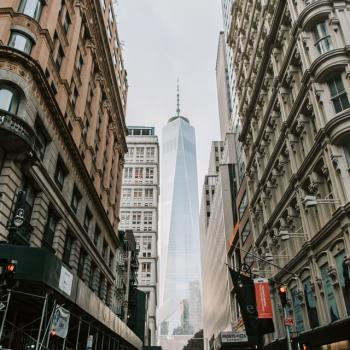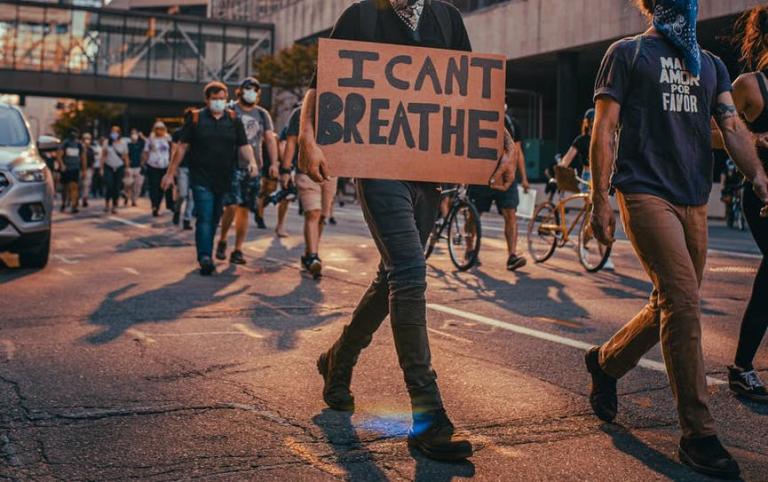.
I read a fascinating thread by Anand Giridharadas that puts our current moment in stark perspective. We’re dealing not with one major crisis right now, or even two or three. There are five. We’re dealing with five massive, overlapping, and interlocking crises at the same time, each touching the core of our common life in America and beyond. They are:
Crisis 1: Global Pandemic
“The pandemic and the already unhealthy host society the virus attacked.”
We were cooking long before the pandemic exposed how little communal harmony exists within our culture, and how little margin we’ve been living with, especially those on the bottom of the socio-economic spectrum. We are not reacting well because we were already not well. We lack the relational, political, economic, social, or intellectual capacity to react well to a global pandemic. Consequently, we’re not handling the pandemic, it is mostly handling us.
Crisis 2: Economic Injustice
“The employment crisis unleashed by that pandemic that pushed our inequitable economy from chronically ill to terminally diseased.”
The real crisis is not “The Economy” but the way work has been distorted and disconnected from economic power. Our economy is structured so that the outcomes of work are not shared equitably or justly. Most of the fruits of our labor flow toward the uber-wealthy, who have rigged the game so they can refuse to pay fair wages and avoid paying taxes. They did this by legalizing their ability to control the agenda of governments via unlimited campaign contributions. The economy is structured inequitably because that’s the way the billionaire class and corporations want it to be. However, this economic inequality is creating more and more societal unrest.
Crisis 3: Racial Injustice
“The racial crisis fueled by police barbarism and institutionalized hatred.”
Our national myth is that we’re a nation of laws founded on personal rights and religious freedom. Those things may be true. Yet we have struggled to tell the whole truth about the genesis of American political and economic prominence. The whole truth is: we are also a country founded on the genocide of millions of Native Americans, whose economic engine thrived on the backs of African slaves. The original sin of systemic racism has been sustained through the racist policies and actions of federal, state, county, and local governments, including law enforcement and the courts. Until we can learn to tell the whole truth and change the systems, we will continue to facilitate racial injustice, while denying its impact.
Crisis 4: Threatened Democracy
“The democratic crisis embodied, but hardly initiated, by a mad demagogue in the highest office in the land, who behaves more and more like a fascist.”
The American crisis of democracy is part of a global trend. In their book, How Democracies Die, Steven Levitsky & Daniel Ziblatt demonstrate how Trump is running the old-school authoritarian playbook: 1) weak commitment to democratic rules, 2) denying the legitimacy of opponents, 3) tolerance for violence, and 4) willingness to ignore civil liberties and attack the press. Trump gets away with it because, as economic and racial minorities clamor for change, many in our society are willing to erode democratic institutions in order to maintain power. The result is that essential aspects of democracy are straining under the weight of a corrupt president and his co-dependent party: the rule of law, free and fair elections, checks and balances, anti-corruption measures, transparency in government, a non-political judiciary, the free press … all of these structures of our democratic governance are in jeopardy today.
Crisis 5: Climate Change
“The environmental crisis, hovering over the others, threatening everything that breathes.”
Scientific consensus about the impact manmade concentrations of carbon dioxide, methane, and nitrous oxides are having on the climate is more univocal than the current scientific views on gravity. Greenhouse gas levels in the earth’s atmosphere are higher than they’ve been in 800,000 years. Yet, many find it difficult to see the looming problems, what with their heads so firmly in the sand. 70% of Americans age 18 to 34 worry about global warming, compared with only 56% of those who are 55 and older. With every passing year there’s more evidence that this is the mother of all crises. What’s crazy is, we have the ability to curb climate change while stimulating a green-energy economic boom. All we lack is the political power, because most of the political power is held by the fossil fuel industry.
Conclusions?
Each of these crises have fairly predictable outcomes, and they’re not pretty. Our system is perfectly designed to produce the current results and trends. So, unless we change the systems, the results and trends will continue. For a long time an honest assessment of where we are heading has simply been too terrible for most people to contemplate. When the truth is unthinkable, many people simply stop thinking. They cling their illusions, equivocate, prevaricate, or embrace to conspiracy theories and propaganda.
Giridharadas sees reason to hope in our cultural meltdown. Our illusions have finally become unsustainable, as more and more people embrace the need for structural change. The gist of Giridharadas’ short piece is simple. Hindsight is 20/20, but here on the business-end of five massive crises at the same time we are receiving the gift of 20/20 foresight. “These synced crises have freed us from any illusion that we may have been living right,” he says, “They make plain that we will either transform our way of life, or we will decline and fall — as Americans, and possibly as a species.”
Five massive crises at the same time have begun to stimulate our collective tragic imagination. We can now visualize the loss of everything we hold dear. We can think the thoughts we have previously refused to think. We’re going to need that tragic imagination if we’re going to vote for and work for systemic change.
You can read the entire thread here, or listen to Giridharadas read it aloud here.
Please follow me on Twitter at: @Tim_Suttle













